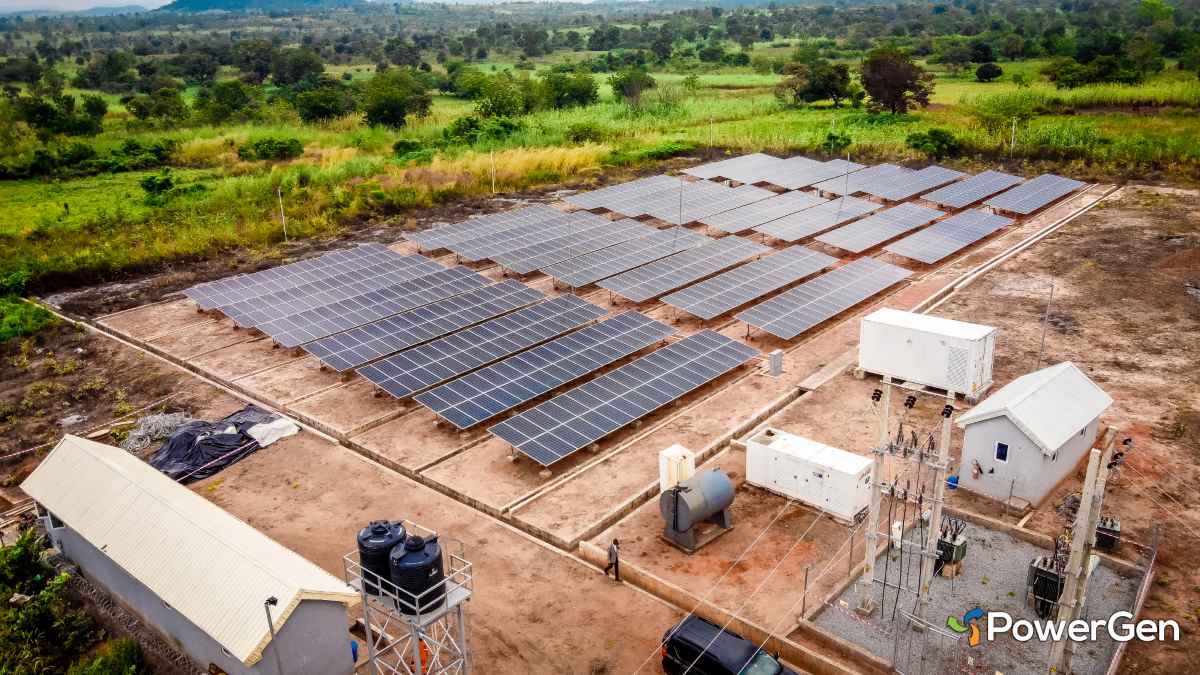With funding secured, PowerGen is well-positioned to serve the energy needs of more than 68,000 households and reduce the cost of power for 7,000 businesses
ABIDJAN, Ivory Coast, January 17, 2025/APO Group/ —
PowerGen Renewable Energy (PowerGen) has partnered with leading international investors to establish a scalable, distributed renewable energy platform targeting the deployment of 120 MW of renewable power, including battery energy storage solutions across Africa.
The platform is a collaboration between PowerGen and the Private Infrastructure Development Group (PIDG), the Danish Investment Fund for Developing Countries (IFU), EDFI Management Company, through its EU-funded Electrification Financing Initiative (ElectriFi), and the African Development Bank’s Sustainable Energy Fund for Africa (SEFA). The anchor commitment from PIDG was made through InfraCo, its investment arm, with concessional capital provided by PIDG Technical Assistance.
SEFA is a multi-donor special fund managed by the African Development Bank that provides catalytic finance to unlock private sector investments in renewable energy and energy efficiency.
Building on PowerGen’s thirteen-plus years of experience developing, implementing, and operating projects across Africa, the funds will support the deployment of a 120MW portfolio of renewable mini-/metro-grids and commercial and industrial (C&I) power solutions, inclusive of battery energy storage.
Initially focused on Nigeria, Sierra Leone, and the Democratic Republic of the Congo (DRC), the platform will be expanded within the wider region, leveraging PowerGen’s deep pipeline in combination with local developer and engineering, procurement and construction (EPC) partnerships. Adopting a platform approach has the potential to accelerate efforts to connect the 570 million people across sub-Saharan Africa who currently lack access to electricity, according to data from IRENA.
The first closing of the transaction was reached in January 2025 and will catalyse additional equity and debt finance later this year. PowerGen is a private sector partner of Power Africa, a U.S. government-led partnership that provided technical assistance to PowerGen and previous funding to ElectriFi and SEFA.
This project will bring electricity to underserved areas in Nigeria, Sierra Leone, and the DRC, and generate significant economic activity
PIDG’s Head of Investment Management for InfraCo, Claire Jarratt, said: “PIDG has worked with PowerGen for a number of years in Sierra Leone, and we are confident in their ability to develop, deliver and operate high-quality distributed energy infrastructure in challenging conditions. We are therefore delighted to anchor this new investment. We are pleased to be working with partners to support PowerGen to expand its offering across sub-Saharan Africa at a platform scale that has the potential to be truly transformational.”
Luke Foley, PIDG Deputy Head of Technical Assistance, added: “This investment epitomises the PIDG mandate. It builds on PIDG’s innovative use of its blended finance tools and reinforces its dedication to support the deployment of sustainable energy solutions, which are key to both combating climate change and fostering economic resilience in the region.”
IFU Investment Director, Henrik Henriksen, said: “There is a tremendous need for enabling access to clean energy that can assist underserved households and businesses in Africa to become more resilient to climate change and to provide them with opportunities for better living conditions without further increasing greenhouse gas emissions. Therefore, we are very proud to be a part of a joint investment enabling PowerGen to develop sustainable off-grid power solutions in sub-Saharan Africa. This aligns with our increased focus on supporting Africa’s transition to be more climate resilient.”
Rodrigo Madrazo Garcia de Lomana, CEO of EDFI Management Company, said: “Our initial investment in PowerGen Renewable Energy in 2019 has proven to be truly catalytic, paving the way for this significant funding round. We are excited to continue supporting PowerGen’s growth as part of this round, which showcases the ripple effect of our early commitment. PowerGen exemplifies how targeted early-stage funding can unlock transformative solutions for sustainable energy access in emerging markets.”
Dr Daniel Schroth, Director of Renewable Energy and Energy Efficiency at the African Development Bank, said: “The African Development Bank’s contribution to PowerGen’s platform reflects our commitment to catalysing private investment in sustainable infrastructure and energy access in line with the objectives of Mission 300. This project will bring electricity to underserved areas in Nigeria, Sierra Leone, and the DRC, and generate significant economic activity and create numerous employment opportunities. It’s an excellent example of our strategy to drive development through targeted partnerships.”
Aaron Cheng, CEO of PowerGen, said: “We are thrilled to announce this transformational next chapter to drive our vision of providing clean, reliable, and affordable energy across Africa. We are grateful to our terrific partners for their collaboration, and together, we look forward to contributing at scale to the energy transition and socio-economic growth across the continent.”
With funding secured, PowerGen is well-positioned to serve the energy needs of more than 68,000 households and reduce the cost of power for 7,000 businesses. Increasing access to reliable and affordable electricity is expected to enhance business productivity, create indirect jobs and drive economic growth.
Distributed by APO Group on behalf of African Development Bank Group (AfDB).


 Energy3 days ago
Energy3 days ago
 Business3 days ago
Business3 days ago
 Business3 days ago
Business3 days ago
 Energy2 days ago
Energy2 days ago
 Business3 days ago
Business3 days ago
 Business3 days ago
Business3 days ago
 Energy2 days ago
Energy2 days ago
 Energy3 days ago
Energy3 days ago












